I arrived in Hanoi, Vietnam in late September, unsure of what the next 3 months would entail for my work, learning and personal growth. Despite having traveled extensively, Vietnam was a new country and culture for me, and my 10-week internship through the Public Administration department and the Hatfield School was still evolving in terms of the scope of work I would conduct and who I would be working with in Vietnam. On paper, my internship (also a 6 credit PA 505 course supervised by Dr. Marcus Ingle) had two primary components: to assist with the Executive MPA cohort learning trip in Vietnam and to further relationships PSU and the Hatfield School had already established in the country focused on collaborative learning and Sustainable Development. Yet my experience in Vietnam was far richer than could be laid out in an internship description or course syllabus. I returned to Portland for winter term having scratched the surface of a new country and culture, more keenly aware of the benefits and challenges of working abroad within the context of Public Administration, and with a greater understanding of both the value that an MPA student can bring to another country and how an international working component can bolster a student’s own graduate experience.
My time in Vietnam was different than previous international travels. For the first time, I was experiencing a foreign place by working closely with UN and local officials and engaging with partners in a new capacity that wasn’t just as a tourist or a visitor. After getting to spend a week with Dr. Ingle and his student group learning about administrative practices and challenges in a rapidly changing and growing country, I split the remainder of my time between Hanoi (the capital) and Hoi An (a smaller UNESCO world heritage city on the central coast).
Engaging with local partners can be challenging, as I learned, but PSU already had sound relationships established with many in Vietnam. Following the Vietnamese delegation’s visit to Portland in October for the EcoDistrict summit, leadership officials from Quang Nam Province expressed committed interest in establishing a firm, long-term partnership with PSU to bring lessons from the Portland region to their province.
Along with provincial leaders, I drafted an MOU establishing a 3 year commitment to work together on leadership training for local officials, to further PSU’s involvement with the Hoi An EcoCity project (based on previous collaborative planning sessions between Vietnamese leaders and PSU faculty and students), and to work towards developing integrated models for water and disaster risk management in rural and urban areas of the province. As a result, this spring, Dr. Ingle and PSU students will engage in leadership workshops and a sustainable investment forum in Hoi An, which will bring public and private sector partners from Portland to Hoi An to share successes of Portland’s leadership in urban sustainability. In the fall, Quang Nam Province will send several students to begin their undergraduate education at PSU, furthering lasting ties between the two places.
The successful outcomes of my work in Vietnam were satisfying, but there were challenges as well. I dealt with cancelled meetings, a different pace of work than I was used to, and the importance of personal connections in a relationship-based culture–all good lessons for those of us seeking internationally-based careers. For me, the experience was an invaluable step in building my experience within the realm of global leadership, and for our Vietnamese partners, the work of PSU students like myself provides an opportunity to work across cultures and learn how practices for sustainable development can be incorporated into their communities. In addition to my work, the relationships I formed with Vietnamese people will have a lasting impact on my growing personal experience living and working in a global context.
For students interested in global leadership, I strongly recommend taking advantage of the PA department’s extensive international connections and opportunities. My experience in Vietnam emerged from a year-long process of planning closely with Dr. Ingle (starting in his Global Leadership and Management class in the fall of 2011), and was certainly worth the effort. Working in a different and changing country added a significant component to my graduate education—one that certainly could not have come from just readings and lectures in Portland.
Erik Mandell is a second-year MPA student with a concentration in Global Leadership and Management.
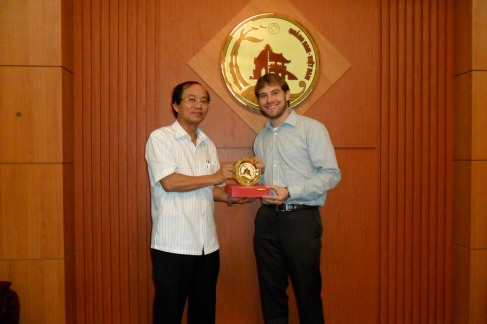
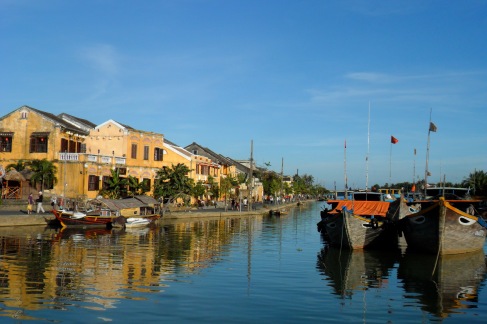
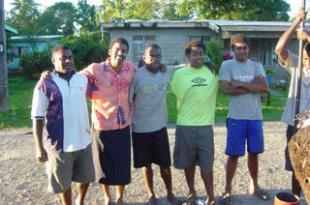
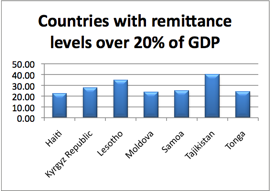 Spread about the globe, the Samoan nation lives in diaspora. For a group of people intrepid enough to get to these islands in the first place, the current far-flung dispersion is hardly surprising. Yet the modern day migration is, for the most part, focused on job-hunting and producing remittances. Although remittances are at times a maligned form of revenue, they are nevertheless an important aspect of Samoa’s resources. Samoa currently receives roughly a quarter of its GDP in the form of these overseas funds, which ranks fourth in the world. But there is another opportunity for emigrants and Samoa to benefit from each other; savings bonds.
Spread about the globe, the Samoan nation lives in diaspora. For a group of people intrepid enough to get to these islands in the first place, the current far-flung dispersion is hardly surprising. Yet the modern day migration is, for the most part, focused on job-hunting and producing remittances. Although remittances are at times a maligned form of revenue, they are nevertheless an important aspect of Samoa’s resources. Samoa currently receives roughly a quarter of its GDP in the form of these overseas funds, which ranks fourth in the world. But there is another opportunity for emigrants and Samoa to benefit from each other; savings bonds.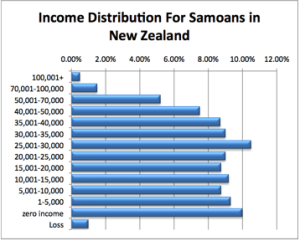

 I believe that an essential function of public service is to ensure access to human rights. My work on aid efforts has developed my desire to the promote human rights both domestic and abroad. I worked on youth empowerment and educational program implementation, as well as facilitating the implementation of a waste management system in rural Peru. I also developed a program for installing improved cooking stoves. The job entailed working with youth and parents to assess the need for community projects, then implementing a system that accurately educated the population on the benefits, which then allowed for the process of installation and maintenance. The primary goal was to empower youth with the opportunity to work on a health project that benefits themselves and the community. My duties also included developing a curriculum by taking into account experiences and community feedback for future projects.
I believe that an essential function of public service is to ensure access to human rights. My work on aid efforts has developed my desire to the promote human rights both domestic and abroad. I worked on youth empowerment and educational program implementation, as well as facilitating the implementation of a waste management system in rural Peru. I also developed a program for installing improved cooking stoves. The job entailed working with youth and parents to assess the need for community projects, then implementing a system that accurately educated the population on the benefits, which then allowed for the process of installation and maintenance. The primary goal was to empower youth with the opportunity to work on a health project that benefits themselves and the community. My duties also included developing a curriculum by taking into account experiences and community feedback for future projects.